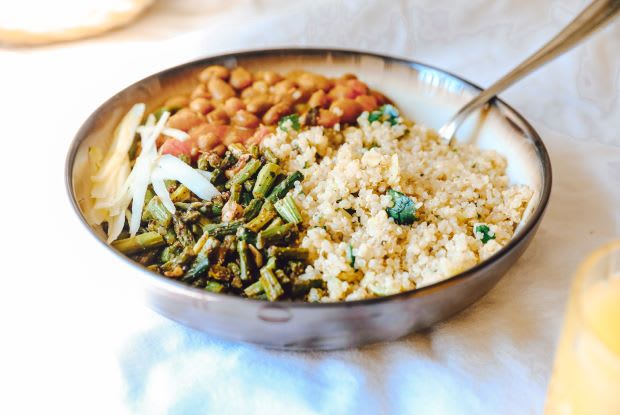Table of Contents
III. Food Triggers that Worsen Symptoms
IV. Outlook and Living with Gastritis
Why Does Gastritis Occur?
Gastritis is a term that describes any condition where the stomach lining becomes irritated and inflamed. Symptoms of gastritis may be acute or chronic. Acute gastritis may cause sudden attacks and flare-ups of symptoms, whereas chronic gastritis symptoms may be milder but last longer. [1]
But why does gastritis occur? What causes stomach lining inflammation? The main culprit of this condition is a bacteria called helicobacter pylori. This bacteria lives in the mucous lining of the stomach and can cause ulcers if left untreated. Other bacterial or viral infections, along with bile reflux, may also cause gastritis. [2]
It is important to get on top of your gastritis condition with gastritis medication like pantoprazole, omeprazole, and Nexium. If gastritis is not treated promptly, you may experience severe loss of blood and increase your risk of stomach cancer. [2] Read on for diet tips that can help prevent and manage gastritis symptoms.
If you have gastritis, it is important that your diet consists mainly of anti-inflammatory foods. Because gastritis is an inflammatory condition, foods with anti-inflammatory properties can relieve symptoms. [3] You can start by incorporating different types of fruits into your diet. Raspberries, cherries, strawberries, and blueberries are high in antioxidants and anti-inflammatory properties. [3] You can then try adding foods that are high in fiber and low in acidity, such as asparagus, cauliflower, potatoes, cucumbers, and broccoli. Nuts, like hazelnuts, almonds, and walnuts, are also extremely beneficial because they offer healthy oils, good fats, fiber, and protein. Nuts also provide magnesium and vitamin E. Like nuts, oily fish like mackerel, sardines, and salmon also provide your body with healthy fats. Oily fish are rich in omega-3 polyunsaturated fatty acids, which are great for reducing inflammation. [2] If you recall, helicobacter pylori is the type of bacteria most responsible for inflammation of the stomach lining. According to some reviews, eating foods rich in probiotics may help prevent this type of bacteria and improve gut health. [3] You can consume probiotics from healthy sources such as: These foods are easy to mix and match. For example, you can start your day with a natural yogurt with almonds and blueberries. Lunch can be a quinoa salad served with steamed broccoli and cheese. Finally, dinner can be served with salmon and a side of kale. Healthy foods don’t have to be boring! [3] Eating well is often not enough to fully prevent gastritis symptoms. If you are diagnosed with gastritis, your doctor will likely ask you to keep a food journal detailing specific foods that trigger your gastritis. [1] Common foods that may inflame the stomach include: Fried and fatty foods taste good, but they should be avoided if you are living with gastritis. Fried foods are high in saturated fat and highly inflammatory to the lining of the stomach. Talk to a dietician if you have questions about what foods to eat and which foods to avoid. [1] If you have already begun treatment, the length of your treatment depends on the type of gastritis, the cause, and its severity. Gastritis treatment medications are usually very effective, and drugs like Nexium (esomeprazole), Prilosec (omeprazole), and Protonix (pantoprazole) may be able to improve your condition quickly. Before starting a new gastritis-friendly diet or making drastic changes to your current diet, it is best to check with your doctor or dietician. With the right diet plan, gastritis can be a manageable condition. Still, it is important that you don’t neglect other factors just because you are eating right. Too much stress, being overweight, and leading a sedentary lifestyle can contribute to stomach issues. Certain pain medications like aspirin can also cause stomach lining inflammation. Speak with your doctor today to discuss treatment options for your gastritis. If you already have a prescription, fill your online order on our drug page today. The content in this article is intended for informational purposes only. This website does not provide medical advice. In all circumstances, you should always seek the advice of your physician and/or other qualified health professionals(s) for drug, medical condition, or treatment advice. The content provided on this website is not a substitute for professional medical advice, diagnosis, or treatment.
What to Eat for Gastritis

Food Triggers that Worsen Symptoms
Outlook and Living with Gastritis

